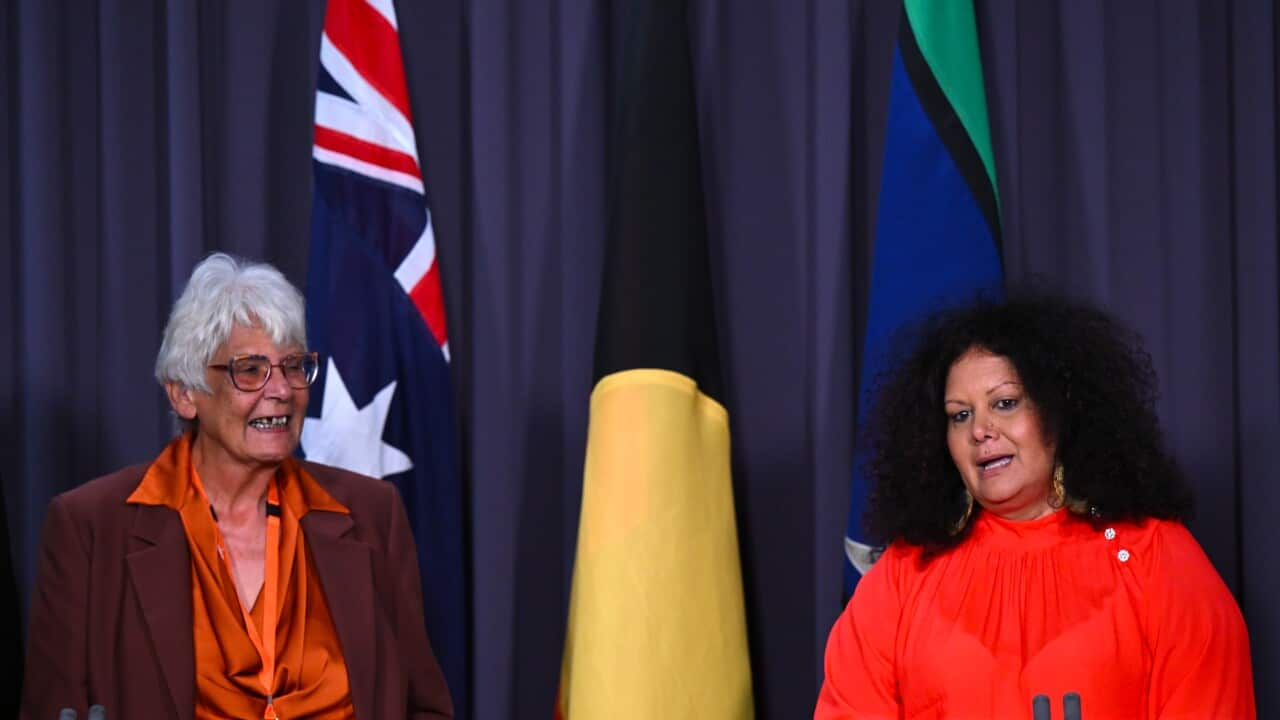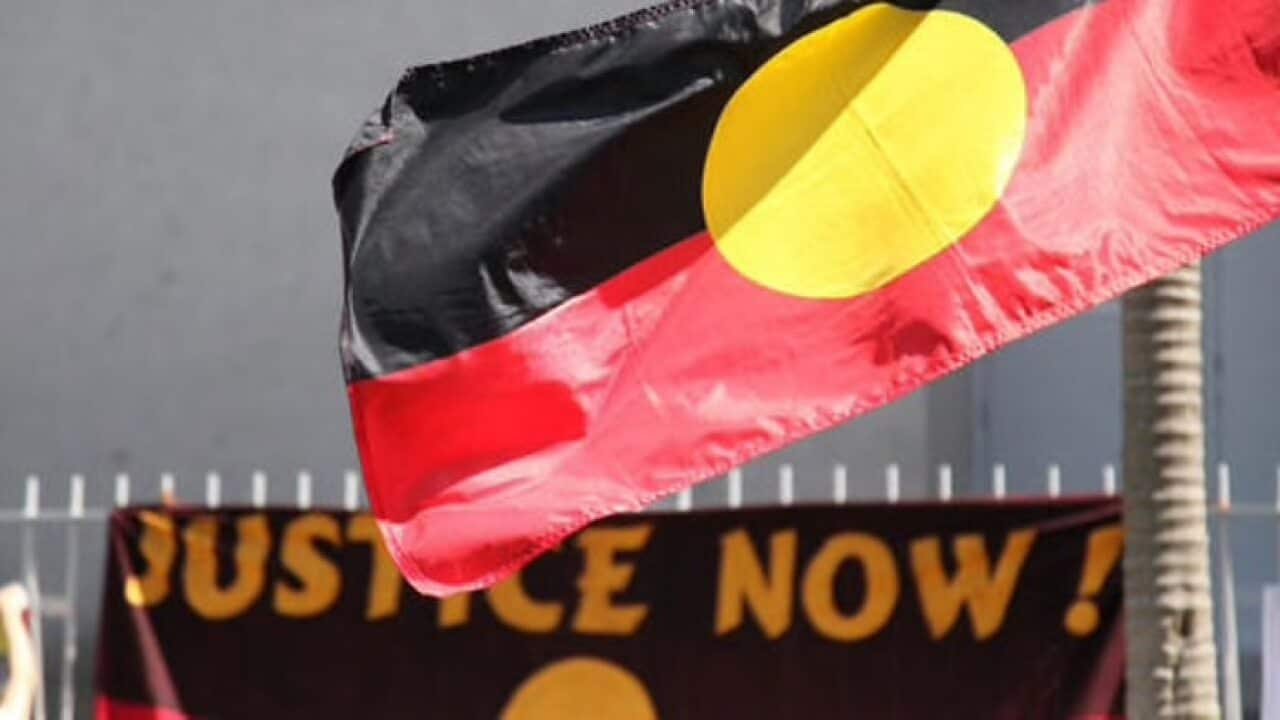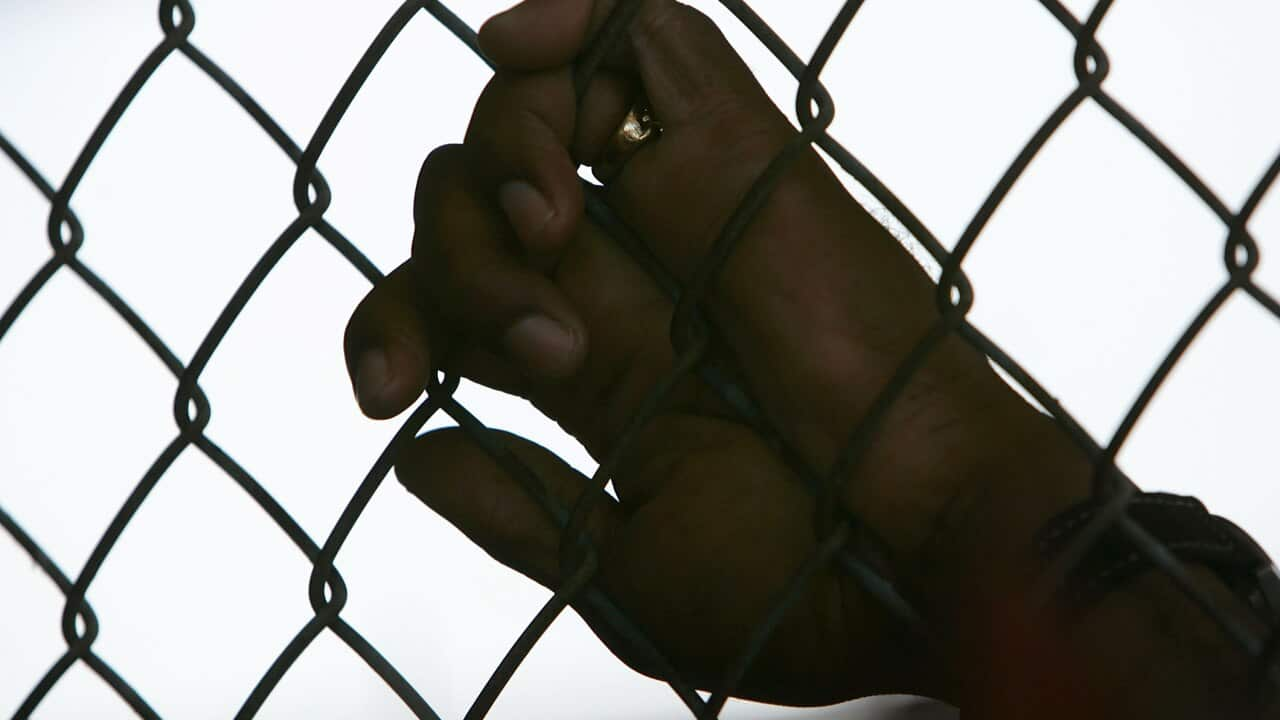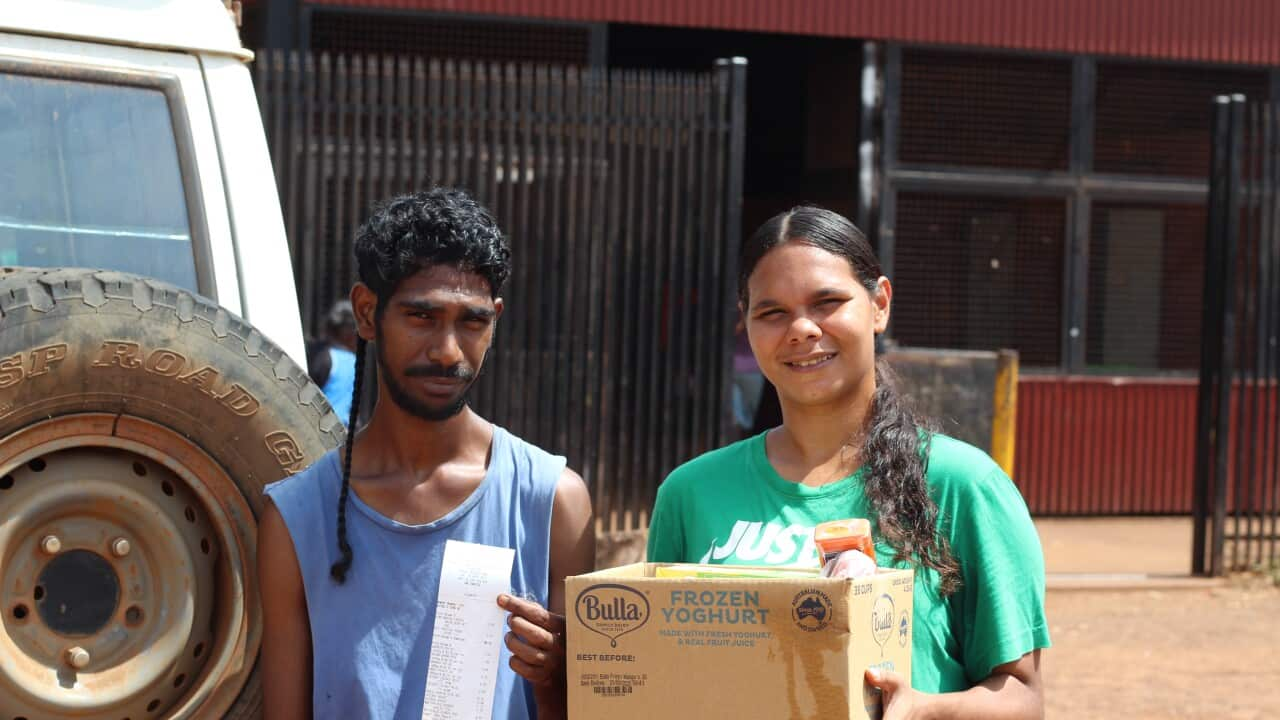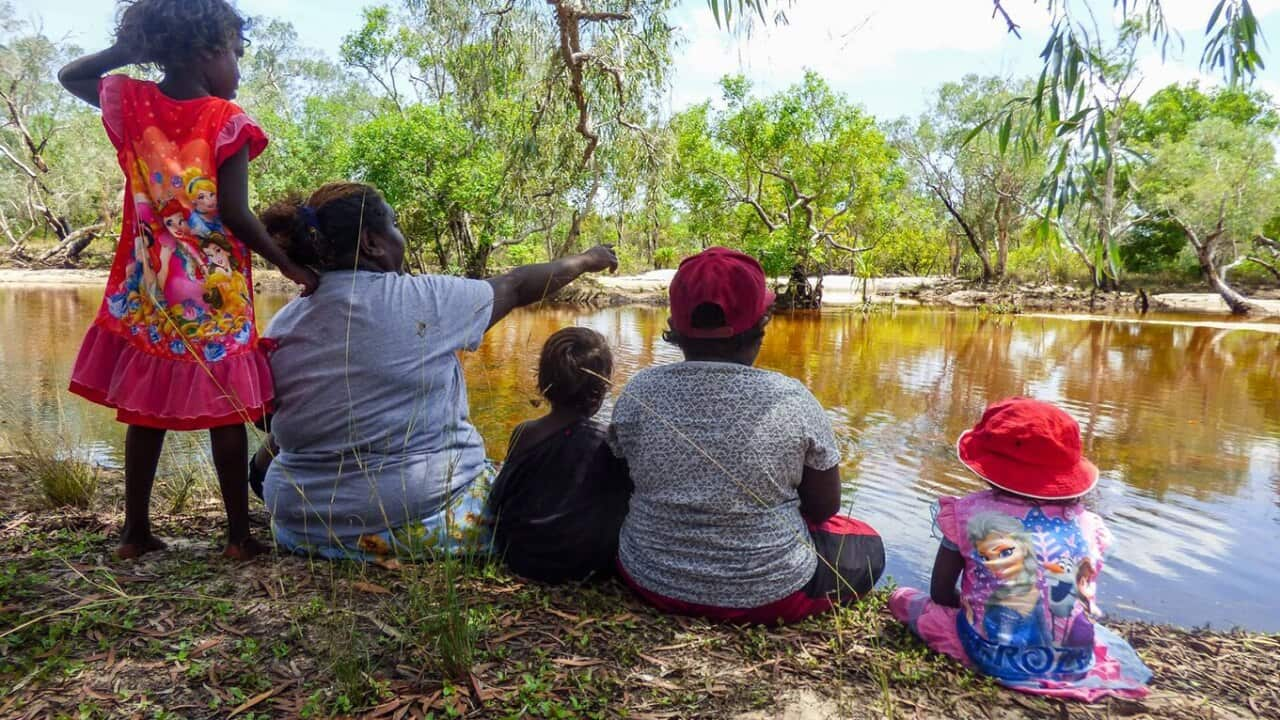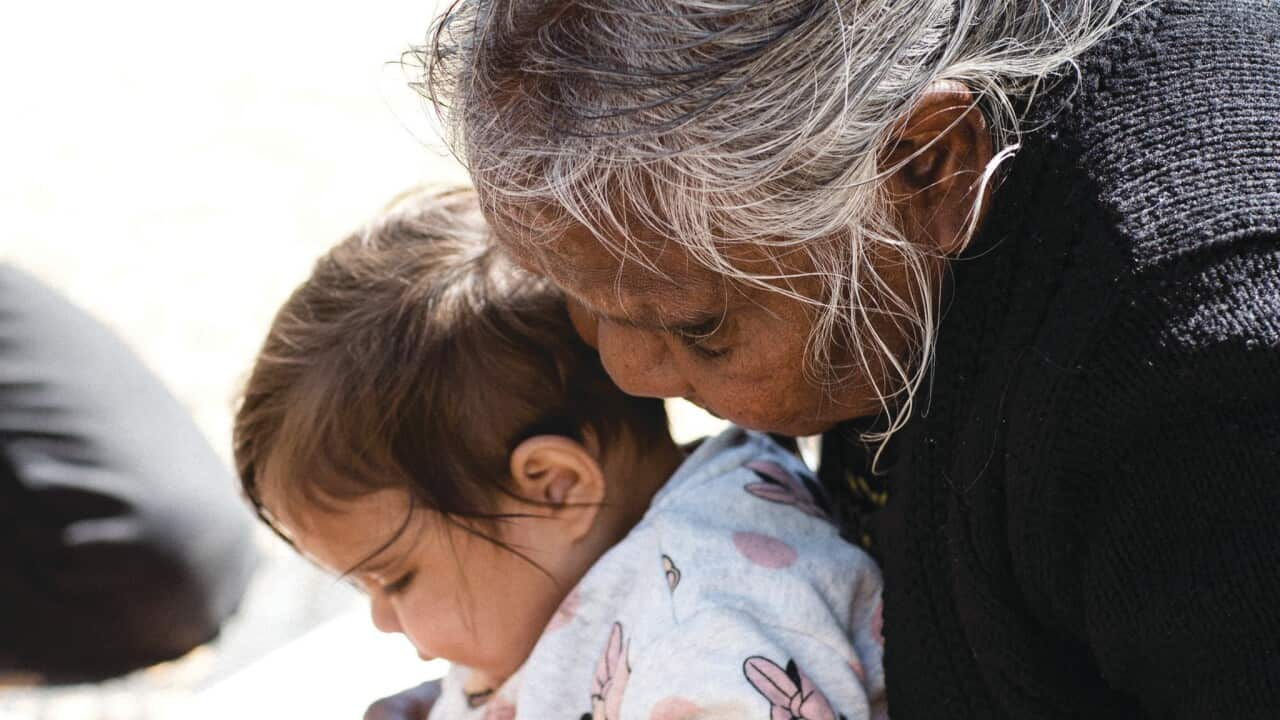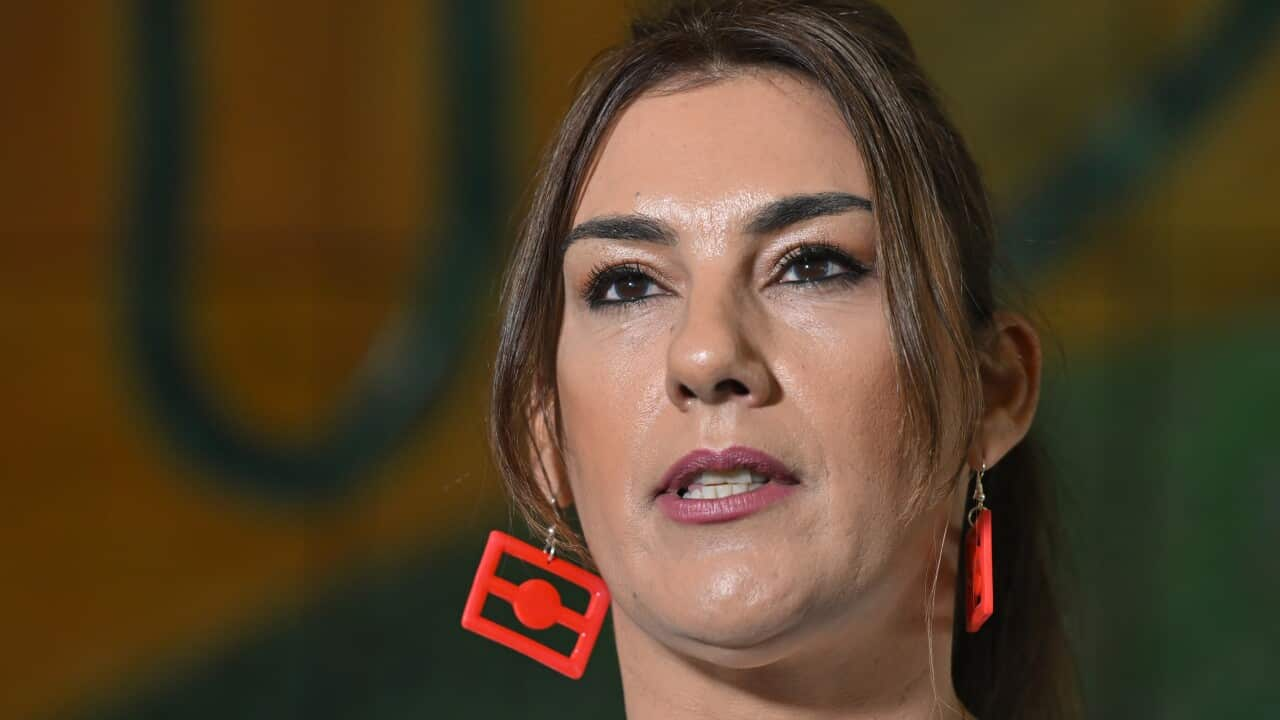While acknowledging there is still a lot of work ahead, First Nations leaders have said the National Agreement on Closing the Gap is beginning to show some improvements.
On Monday the Federal Government released the , with Prime Minister Anthony Albanese telling the Parliament that the road ahead wasn't easy, but that the nation couldn't "turn our back" to entrenched disadvantage and violence affecting Indigenous people.
Arrernte and Gurdanji woman Pat Turner, the lead convenor for the Coalition of peak Indigenous bodies, said the full impacts of the changes would take time to materialise.
“We have seen improvements in critical areas such as the proportion of First Nations babies born at a healthy weight and the increase in the land and sea country under Aboriginal and Torres Strait Islander control - these are significant achievements that deserve recognition," she said.
“For the implementation to be successful, systems, policies, and governance must evolve; government must evolve.
"It is our responsibility, in partnership with governments, to strengthen the policies that are working and change the ones that are failing – those that continue to exclude the basic needs of our people."
The latest Productivity Commission reporting on Closing the Gap shows that, while there has been improvement in 11 of the 19 targets in the National Agreement, only five are on track to be met.
"To close the gap would ultimately erase the gulf that lies between us and our true potential as a nation," Mr Albanese said.
"It is about ensuring that all Australians get the same chance in life."
Some of the key measures in the plan for remote Indigenous communities in 2025 include capping the price of 30 essential products in 76 remote stores, better access to laundry services, upskilling Indigenous workers for a 'nutrition workforce', copying a blueprint from the Arnhem Land Progress Aboriginal Corporation, and deliver free wifi to 23 remote communities, in partnership with NBN Co.
Other initiatives include increased access to culturally safe maternal care through 10 Birthing on Country activities across rural, remote and very remote locations to improve healthy birthweights and reduce pre-term births, and scholarships for up to 150 Indigenous psychology students to increase the availability of culturally safe mental health support.
Federal Minister for Indigenous Australians Malarndirri McCarthy reminded the states and territories of their obligations under the National Agreement, and said the Commonwealth was creating "systemic change" to improve how agencies worked with First Nations people.
"We are focused on creating jobs with decent conditions in remote Australia, addressing housing overcrowding, supporting healthy children and safe families, and community driven responses to address the causes of crime," she said.
Opposition Leader Peter Dutton said politicians had the opportunity to do "what's right and effective" which was owed to disadvantaged Indigenous Australians and taxpayers.
"There's little that we can do if safety and housing and health and education and employment are not there for Indigenous Australians and in too many parts of the country today, those basics are missing," he said.
"We have to make sure that as a national parliament, we can work together in a bipartisan way to achieve better outcomes."
But with a federal election due before May 17, Ms Turner said she was "very worried" that First Nations people could be made the target for harmful rhetoric on law and order.
Co-convenor Catherine Liddle, also the chief executive of SNAICC - Voice for our Children, told NITV that Mr Dutton's comments were confusing in the wake of his call for a royal commission into child sexual abuse in Indigenous communities.
"Child sexual abuse exists in all communities and one case is one case too many, but a royal commission isn't going to tell us anything that we don't already know," Ms Liddle said, pointing out that there had been more than 30 inquiries into First Nations children since the Bringing Them Home report in 1997.
"We know that every single one of those reports and inquiries and royal commissions has found pretty much exactly the same thing, and they all point to the need to enable communities ... to provide safe spaces for children ... to have proper service delivery and really invest in the infrastructure that families need to be safe now that means action."
In October last year consumer advocacy organisation Choice found, on average, groceries in remote communities cost more than double prices in capital cities.
Central Land Council chief executive Les Turner welcomed Labor's announcement of a price cap on 30 essential items sold by remote community stores and called on the Coalition to support the policy.
“This is great news for our people," Mr Turner said.
“They have been crying out about unaffordable food and other essentials in their communities.
“We can’t beat the epidemic of diabetes, kidney disease and rheumatic fever that is shortening our lives if we can’t afford healthy food.”
The Federal Government highlighted from 2024, its investment in 27 community-led justice reinvestment initiatives and expansion of the First Nations early childhood program Connected Beginnings.
The establishment of a dedicated National Commission for Aboriginal and Torres Strait Islander Children and Young People, to address the over-representation of First Nations children and youth in out-of-home care and detention is one of the examples where policy change is being led by First Nations people, Ms Liddle told NITV.
"Where we're seeing traction is when governments genuinely step up to the effort that it takes to genuinely have shared partnerships in decision making," she said.
"In my sector, that commitment by the 16 allies to transfer service delivery and child protection to the Aboriginal community controlled sector, that also is a massive commitment, and it speaks to the transformation of mainstream services.
"And the expansion of the Connected Beginnings sites is having massive impact.
"These are all things we see where the Agreement is working."
Ms Liddle said in order to see positive change all governments needed to work with the Indigenous community controlled sector.
"When we're talking about where those gaps are widening, it's where we haven't seen a genuine commitment to actually transferring to Aboriginal community controlled services," she said.
"One of the weirdest things about this is that in every other sector in Australia, we say, 'Let's ensure that the experts in service delivery are the ones that are funded to deliver services, services to the communities that know them'.
"It's only the Aboriginal community controlled sector, and only Aboriginal Affairs, where the experts in their own environments have to compete and have to fight to be able to deliver the services that are required."
The government last Friday announced more than $842 million for the Northern Territory Remote Aboriginal Investment, which will go towards services such as policing, women's safety, education and alcohol harm reduction.
“No nation’s story is simple, least of all Australia’s," Mr Albanese said.
"It is a rich, proud and deeply remarkable story – a story of hope, achievement, and survival against the odds.
"Our stories are intertwined – but as the Closing the Gap report routinely lays bare, there are still too many areas in which we are not together.
"Today is about facing up to what's not working and learning from what is.
"The success stories in this report have been written by Aboriginal and Torres Strait Islander people themselves.”
Independent Senator Lidia Thorpe, a Gunnai, Gunditjmara and Djab Wurrung woman said, in the past year, the manner in which First Nations policy is developed and implemented had gotten worse.
"It has been a year of betrayal, delay and deflection," she said.
"I want to be very clear: these gaps are widening because governments are intentionally widening them.
"The list of attacks on First Peoples by governments is growing by the day."
Senator Thorpe said governments have repeatedly shown they have no good faith commitment to the National Agreement, pointing to the meeting of Indigenous affairs ministers from across the country in November to discuss the high rates of unsentenced First Nations children in prison.
"But instead of working to address the problem, since that November meeting, we’ve instead seen states introduce policies to hold more children on remand," she said.
"Labor premiers Jancinta Allan (Victoria) and Chris Minns (NSW) have both taken steps to make it more difficult for people to receive bail; in Queensland it is now harder to get bail as a child than as an adult.
"We are also seeing moves in the NT to dismantle the child placement principle, which is in place to keep our children connected to family, culture and kin."
